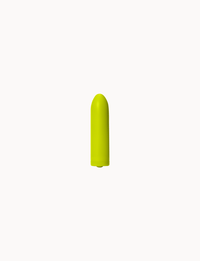There’s an unfortunate misconception that someone having difficulty getting wet for sex is simply unaroused or even unattracted to their partner. But that’s not always the case. And while we’re fans of foreplay to get that arousal going, sometimes, that’s not always enough to overcome vaginal dryness. Enter: lube.
For around 17 percent of people assigned female at birth (AFAB) between the ages of 18 and 50, vaginal dryness is an issue during sex. And for those who have experienced menopause, that number shoots up to 50 percent. To make sex more enjoyable for those who suffer from vaginal dryness, lube can be a handy helper. But how do you know which lube you should be using?
Pros and Cons of Different Lubes
Water-Based Lube
Water-based lube comes in two forms: with glycerin and without. Although water-based lubricants are considered safe for most skin types, those who are prone to yeast infections may want to steer clear of lubes with glycerin. Glycerin may promote yeast or bacterial infections because it breaks down into sugars that yeast and bacteria can feed on.
Water-based lubes have a thin consistency, making them the easiest lube to wash off. However, that pro can also sometimes be a con. If you’re trying to have penetrative sex in the shower, for instance, water-based lube won’t help you much. Even if you’re not having sex in the shower, you may still find yourself needing to reapply the lube.
If you’re bringing toys into the mix, water-based lubes are a good choice. The same is true if you intend to use any type of condom. Whether it’s latex or a synthetic variety, water-based lubes are safe to use.
Silicone-Based Lube
Unlike water-based lubes, silicone-based lubes generally don’t require preservatives, which is good for vaginal health. Silicone on its own is hypoallergenic, which makes silicone-based lubes a good option for people with sensitive skin, as long as that lube doesn’t contain fragrances, which may cause an unpleasant reaction.
When choosing lube, keep in mind your vagina’s pH level. Vaginas, on their own, are a little acidic. A healthy vagina’s pH ranges between 3.8 and 5.0. Ideally, you want to choose a lubricant that doesn’t affect your pH. Silicone-based lubes are pH neutral, making them unable to interfere with your vagina’s pH levels.
Silicone-based lubes generally last longer and are more slippery than water-based ones, but they can’t be used in every situation. Silicone-based lubes can potentially damage silicone sex toys, so you should stick with a different type of lube if you plan on bringing silicone toys into your bed. If you’re using hard-material toys, such as glass or ceramic, you’re good to go with silicone-based lubricants. These types of lubes are generally safe for use with all kinds of condoms as well.
Oil-Based Lube
When thinking about using an oil-based lube, tread lightly. And if you’re prone to yeast infections, you may want to steer clear altogether. A two-year study of sexually-active women between the ages of 18 and 65 found that using oils inside the vagina can result in a 32 percent increased risk for yeast infections. Findings like these have resulted in some reproductive health experts suggesting that oil-based lubes should not be used internally at all. You may also want to keep your oil-based lubes away from your sex toys.
Oil-based lubes are also not safe to use with all types of condoms. Although they’re compatible with polyurethane condoms and lambskin condoms–which are generally compatible with all types of lubricants–they may cause latex or polyisoprene condoms to tear.
When it comes to durability, oil-based lubes tend to be the most long-lasting, which can produce other issues. Although this type of lube will most likely not need to be reapplied during your romp, it’ll also stick around after you’re done. You might be inclined to head to the shower to scrub it all off, but using soap and water down there to wash away the lube may negatively affect your vagina’s pH. In fact, oil-based lubes on their own can throw off your pH, even without you trying to wash yourself clean of it.
Hybrid Lube
Hybrid lubes are a mix of water-based and silicone-based lubricants. As such, they contain many of the same benefits and issues that just water-based or silicone-based lubes have. If you’re using a hybrid lube, be sure to follow the directions and restrictions that the ingredients have individually. For instance, you may want to steer clear of silicone sex toys because of the silicone in a hybrid lube.
Like silicone-based lubes, hybrid lubes are often more slippery than water-based lubes alone. They also often last longer than water-based ones. However, they are usually easier to clean than silicone-based lubes.
Natural Lube
Many experts have warned against the use of lubes with glycerin, parabens, and petroleum. Natural lube is free of these chemicals and generally consists of few ingredients. But the category of natural lubes is pretty vast. They may be water-based, silicone-based, or oil-based, as long as they are made from natural ingredients. Some brands make natural lubricants that are vegan and organic, but not all natural lubes fall into these categories.
Wrapping Things Up
Whatever lube you pick, you should try to avoid chemicals like glycerin and parabens, as well as petroleum. In fact, petroleum jelly is widely considered one of the worst options for a sexual lubricant stand-in. When you pick out a lube, look for ones without these ingredients. You may also want to bring litmus test paper to be sure you’re choosing a lubricant that doesn’t affect your vaginal pH too much.
Do yourself a favor and don’t buy an extra large tub of lubricant your first time trying it. You may want to try out a few smaller bottles to find your favorite. Enlist your partner’s help or practice a little solo fun while you test out how different types of lubes feel. Ultimately, lube should make you feel more comfortable during sex. If you’re not feeling good while using lube, it’s not doing its job.




















































